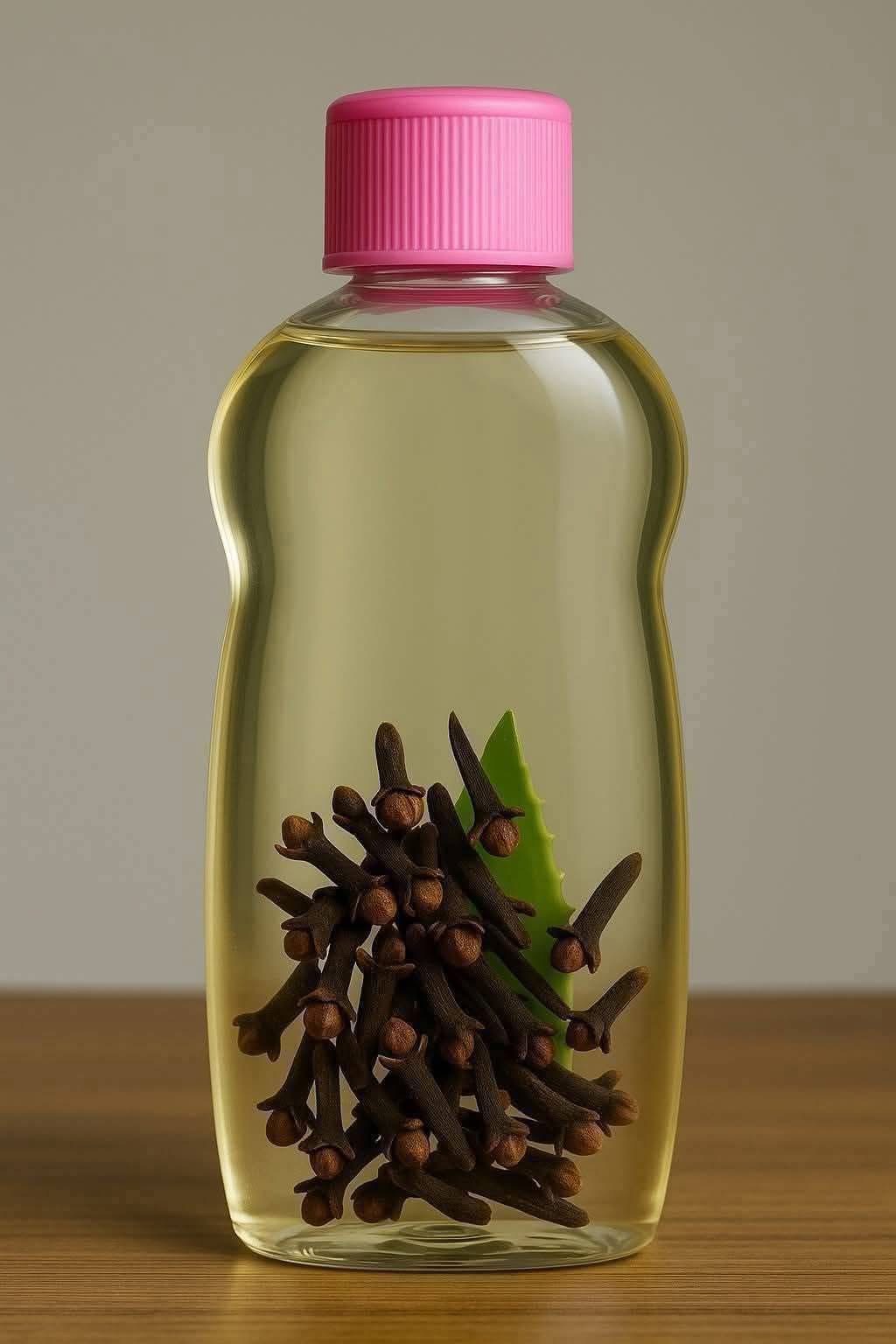Of course. Let’s break down what happens when you add cloves to baby oil, why you might do it, and the important safety considerations.
What Happens: The Short Answer
When you add whole or crushed cloves to baby oil and let them steep, the oil infuses with the compounds from the cloves. This creates a clove-infused baby oil that takes on the warm, spicy, and aromatic properties of the clove.
The primary active compound transferred from the cloves to the oil is eugenol, which is responsible for cloves’ signature scent and many of its effects.
—
The Detailed Process: Infusion
This is a simple infusion, similar to making garlic or herb-infused oils.
1. Extraction: The oil acts as a solvent. Over time, the fat-soluble compounds within the clove—primarily the essential oils like eugenol—are drawn out into the baby oil.
2. Result: The baby oil will gradually take on a warm, spicy aroma and a slight yellowish-brown tint. The longer you let it steep, the stronger the infusion will be.
Why Would Someone Do This?
People historically have infused oils with cloves for various purposes. However, it’s crucial to distinguish traditional/folk uses from medically proven ones. This is not a substitute for professional medical advice.
Potential traditional uses for clove-infused oil include:
· Aromatherapy: The warm scent of clove is thought to be comforting and stimulating. The infused oil could be used in a diffuser (check manufacturer guidelines first) or simply smelled from the bottle.
· Topical Application for Minor Aches: Eugenol has mild analgesic (pain-killing) and anti-inflammatory properties. A highly diluted clove oil is sometimes used in folk remedies for massaging sore muscles or aching joints. (See WARNING below).
· Insect Repellent: The strong scent of clove can deter some insects. Some people use it as a natural mosquito repellent, though its effectiveness and duration are limited compared to registered repellents like DEET.
⚠️ VERY IMPORTANT: Safety Warnings & Considerations
This is the most critical part of the answer.
1. Skin Irritation and Allergy Risk: NEVER apply clove-infused oil (or any homemade infusion) to a baby’s skin. Baby skin is extremely sensitive. Clove oil, even when diluted, is a known sensitizer and can cause severe irritation, rashes, or chemical burns. The name “baby oil” is misleading for this use; it is not safe for babies.
2. Use on Adults with Caution: If an adult wishes to use it topically, it must be patch tested first. Apply a small amount to a patch of skin (like the inner arm) and wait 24 hours to see if there’s any reaction. Always dilute a clove infusion further with a carrier oil (like pure mineral oil or coconut oil) before skin application.
3. Do Not Ingest: This infused oil is for external use only. Do not swallow it.
4. Shelf Life & Contamination: Adding organic material (cloves) to oil creates a risk of bacterial growth, such as C. botulinum (botulism). If you make this, store it in the refrigerator and use it within a few weeks. To reduce risk, you can gently heat the oil and cloves in a double boiler for 15-20 minutes (do not boil) to help sterilize the mixture, but this does not eliminate all risk.
—
How to Do It Safely (For Adult Use Only)
If you want to proceed for aromatic or very cautious adult topical use, here’s a method:
1. Ingredients: 1/2 cup of pure baby oil (mineral oil), 2-3 tablespoons of whole cloves.
2. Method:
· Lightly crush the whole cloves with a mortar and pestle or the flat side of a knife to break them open and release their oils.
· Place the crushed cloves in a clean, dry glass jar.
· Pour the baby oil over the cloves, ensuring they are completely submerged.
· Seal the jar tightly and store it in a cool, dark place for 1-2 weeks. Shake the jar gently every day.
· After steeping, strain the oil through a fine-mesh sieve or cheesecloth to remove all solid clove pieces.
· Store the finished infused oil in the refrigerator and use within one month.
In conclusion: Adding cloves to baby oil creates a fragrant infusion. While it has historical uses in aromatherapy and folk remedies, it must be used with extreme caution, never on babies, and never ingested. The safest use is as a scented oil for aromatherapy purposes only.
